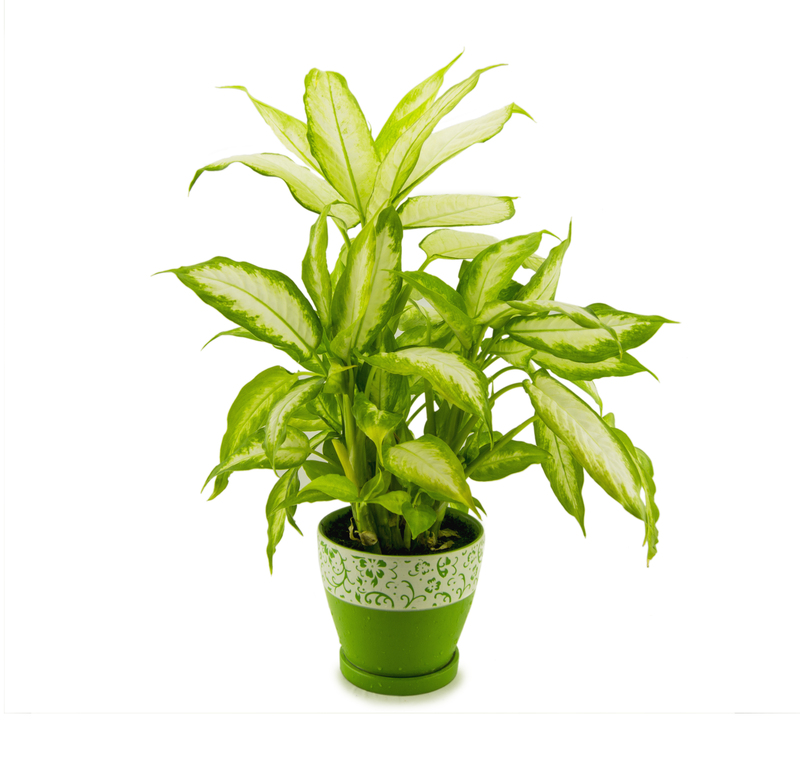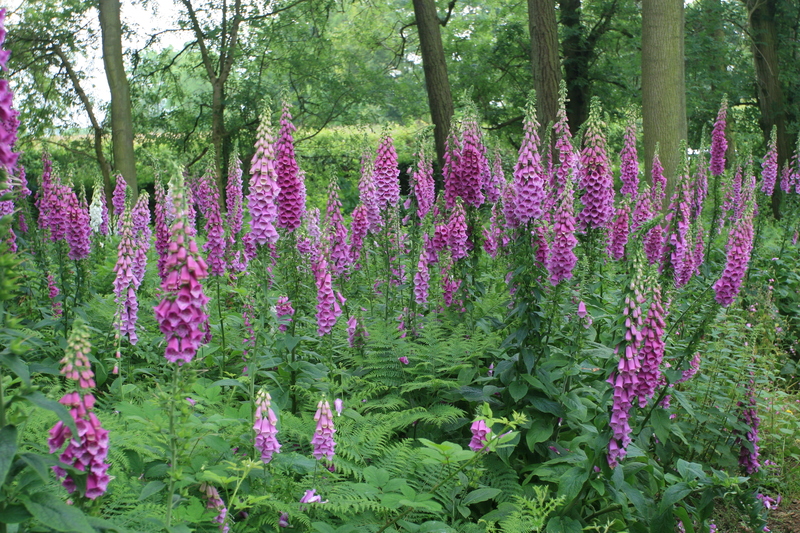Turning Trash to Garden Gold
Posted on 01/06/2025
Turning Trash to Garden Gold: Transform Your Waste for a Thriving Garden
Every day, households around the globe throw away countless tons of kitchen scraps, yard debris, and organic materials that could be transformed into valuable resources for the garden. Instead of letting this "trash" clutter our landfills, why not turn it into "garden gold"? Through various composting techniques, creative upcycling, and thoughtful reuse of everyday items, you can boost the health and productivity of your garden while reducing landfill waste. Let's explore the art and science of turning trash into treasure for your green haven.

Why Should You Turn Trash Into Garden Gold?
Composting and recycling organic waste not only reduces the strain on our environment but also nurtures your garden with rich, nutrient-dense matter. By recycling organic waste rather than discarding it, you:
- Enrich soil structure and fertility
- Decrease landfill waste and methane production
- Save money on commercial fertilizers and bagged compost
- Support beneficial soil microbes and earthworms
- Foster healthy plants, vegetables, and ornamental gardens
Composting: The Classic Method of Transforming Trash into Garden Gold
Composting deserves the spotlight when talking about rejuvenating garden soil with kitchen and yard waste. The process breaks down organic trash, like vegetable peels, coffee grounds, and yard trimmings, into a mulch-like substance called humus--often referred to as "black gold" for your garden.
Essential Ingredients for Successful Composting
- Browns: Dry leaves, paper, straw, cardboard--these provide carbon and structure.
- Greens: Vegetable and fruit scraps, grass clippings, coffee grounds--these add nitrogen, fueling decomposition.
- Water: Necessary for microbial activity. Keep your pile damp but not soggy.
- Oxygen: Aerating your compost by turning it helps everything break down efficiently.
What Can You Compost?
Many kinds of waste can be recycled into compost, including:
- Fruit and vegetable peels
- Eggshells
- Coffee grounds and tea bags
- Shredded cardboard and paper (avoid glossy prints)
- Grass clippings and plant prunings
- Dead leaves
- Sawdust and untreated wood chips
- Hair and pet fur (in moderation)
Pro Tip: Avoid adding meat, dairy, or oily foods, as they attract pests and slow the composting process. Never compost diseased plants, pet waste, or chemically treated wood.
How to Start a Compost Pile or Bin
- Select a location: Choose a well-drained, semi-shaded spot near a water source.
- Layer materials: Alternate "greens" and "browns", starting with a coarse base like sticks for airflow.
- Maintain: Add materials as available, keep the pile moist, and turn it every couple of weeks to aerate.
- Harvest: In a few months to a year, depending on conditions, your compost will become rich and crumbly--ready to nourish your garden beds and container plants.
Creative Upcycling for the Garden
Turning household trash into garden assets goes well beyond composting. Everyday objects can be transformed with a little imagination, saving money and giving new life to discarded items.
Ideas for Upcycling Trash in the Garden
- Plastic bottles: Cut and use as seedling protectors, drip irrigation devices, or self-watering planters.
- Old tires: Paint and stack to make raised beds or unique flower planters.
- Egg cartons: Perfect for starting seeds indoors. Just plant the whole section when the seedling is ready!
- Broken tools or furniture: Repurpose wooden chairs as trellises, or old ladders as vertical planters.
- Glass jars and containers: Use as mini-greenhouses, cloches, or to display succulents and air plants.
- Pallets: Convert into compost bins, vertical gardens, or rustic outdoor furniture.
Get creative--the possibilities are endless when you look at trash as potential garden gold!
Benefits of Upcycling in Gardening
- Reduces environmental impact and landfill waste
- Encourages creativity and problem-solving
- Saves money by reusing what you already have
- Adds character and uniqueness to your garden's design
Vermicomposting: Worms Transforming Trash Into Liquid and Solid Gold
Ready to take composting a step further? Vermicomposting involves using red wiggler worms to rapidly digest your kitchen scraps, producing ultra-rich worm castings and liquid "worm tea" to fertilize plants.
Setting Up a Worm Bin
- Get a container: Use a plastic or wooden bin with drainage holes.
- Add bedding: Shredded newspaper or coconut coir works well. Moisten until damp.
- Introduce worms: Red wigglers (Eisenia fetida) are the best choice.
- Feed regularly: Bury small amounts of fruit/vegetable scraps under the bedding.
- Drain leachate: Collect the liquid that drains--a nutrient-rich fertilizer for your plants!
In a few months, you'll be rewarded with worm castings--nature's finest compost--to mix into planting beds, top-dress lawns, or make worm tea for foliar feeding.
Mulching: Trash That Protects and Nourishes
Many materials that might be destined for the trash bin can be repurposed as mulch. Mulching helps gardens retain moisture, suppress weeds, and enrich soil as it decomposes.
Garden Mulch Ideas From Waste
- Grass clippings: Spread thinly to avoid matting, perfect for that nitrogen boost.
- Shredded newspapers or cardboard: Great weed barrier, especially under a layer of organic mulch.
- Leaf litter: Rake into garden beds in autumn for winter protection and slow-release nutrients.
- Wood chips and bark: Use trimmings from your own yard or local tree services.
Turning Other Trash Into Garden Gold
Beyond compost, upcycling, and mulching, there are dozens of ways to transform everyday trash into resources for your garden:
- Banana peels: Dry and grind into powder to feed roses and flowering plants with potassium.
- Crushed eggshells: Scatter around vegetables to deter slugs and add calcium to the soil.
- Coffee grounds: Sprinkle around acid-loving plants like blueberries and azaleas.
- Soda bottles: Repurpose into mini greenhouses, watering spikes, or garden art.
- Old bricks/tiles: Use for garden paths, edging, or building small raised beds.
Troubleshooting: When Turning Trash to Garden Gold Goes Wrong
Common Composting Problems
- Too smelly? Add more "browns" like dry leaves or shredded newspaper.
- Too wet or slimy? Improve drainage and balance by adding more dry material and turning the pile.
- Pile not heating up? Add fresh "greens", ensure adequate moisture, and aerate well.
Upcycling Safely
- Only use nontoxic, untreated materials around edibles.
- Rinse containers and remove labels/adhesives before use.
- Check for sharp edges or damage that could harm plants or people.
Educational Benefits: Teaching Kids and Communities
Transforming trash into garden gold is a perfect opportunity to educate children and community members about sustainability. Involving kids in composting and upcycling not only helps them learn about biology and ecology, but also fosters environmental stewardship and responsibility.
- Start a school compost bin or community garden.
- Hold creative recycling contests for garden art projects.
- Encourage local workshops about composting and sustainable gardening.

Turning Trash to Garden Gold: Sustainable Gardening for the Future
By embracing the principles of turning trash to treasure, you will enrich your soil, promote healthier plants, and contribute to a greener planet for generations to come.
Key takeaways:
- Compost your kitchen and yard waste to make "black gold" for the garden.
- Upcycle containers and materials for planting, mulching, and decoration.
- Practice vermicomposting for even richer fertilizer and soil improvement.
- Inspire others and educate about reducing waste and nourishing the earth.
Conclusion: Every Bit Counts, Every Scrap Matters
In the journey from trash to treasure, every peel, clipping, and bottle has potential. With simple strategies, you can transform everyday waste into a wealth of resources--enriching your soil, boosting your plants, and saving money. So, don't throw away that "trash"--turn it into garden gold and help your garden, your wallet, and our planet thrive!
Latest Posts
Safeguarding Your Garden from Harsh Weather Assault
Boost privacy with these 9 effective and fast-growing hedges
Tips to Combat Severe Wind Effects in Your Garden
Gardening Aesthetics: Cutting-edge Hedge Trimming Techniques

